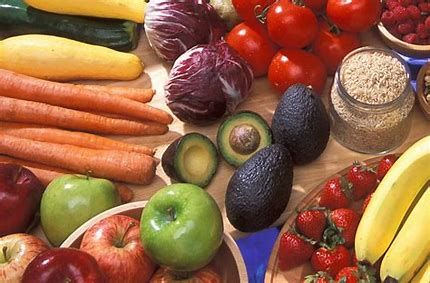Growing fruit and veg May 2019

We were extremely fortunate to have a lovely day which meant we were able to sit out in Victoria and Paddy’s lovely garden, and thanks go to them both for hosting this meeting. Thanks also go to John Allbutt for taking the time to give us the benefit of his expertise.
We started with a general discussion around garden management. The latest scientific report pointed out that we are in danger of losing a substantial amount of insects, they are vital in the eco system even if we don’t welcome all in amongst our fruit, veg and flowers. It helps if we can avoid using pesticides where possible, and by encouraging birds into our gardens that eat aphids, slugs and snails and insects also, such as ladybirds and lacewings, we will be using nature’s own controls.
John emphasised the importance of putting out food for birds between Oct-May as this is when the birds need most support as for part of this period they are feeding their young as well as themselves.
Slug pellets are dangerous to hedgehogs and Victoria and Sally are trying the wool pellets and will give us feedback on their effectiveness at our next meeting. John also talked about the change in gardening/farming/highway/public place management and how attitudes had changed over the years moving from keeping all trimmed and neat and tidy to allowing roadway verges to flower and grow wilder, with the same in public places. Also the move towards meadows in larger gardens and to more insect friendly plants in smaller ones to aid our insect, bee and bird populations.
There was discussion around log piles which encourage grass snakes and slow worms and also Queen wasps which can lodge inside split logs, and the necessity to use gloves when taking up logs for your own safety. Slow worms are a protected species.
As we have clay soil in this area, gardening can be difficult as when in a dry spell the ground is rock hard but becomes very muddy when there is heavy rainfall. We can help the ground by using a lot of well composted material (never use uncomposted material as can be detrimental to your garden), gradually digging this in to a depth of 4-6inches. Dress two times a year this will slowly improve the growing medium. Also mulch constantly as this will suppress weeds and hold in moisture. It is best not to put manure straight onto the garden but instead incorporate it into your compost heap to allow it to be well rotted down. When managing your own compost heap it would be well to invest in a garden thermometer and test by inserting into the middle of the heap. When it reaches 60-65 degrees turn the compost, and water if gets too dry. You can buy compost from Sevenoaks Council (see their website). This is useful for small gardens when you cannot compost.
If investing in fruit trees John’s advice is to buy from an actual grower - not garden centres. Growers develop root stocks that are suitable for different soils. You will need to get trees that complement each other to allow pollination to take place to enable fruiting. Growers will ask questions about your locality, soil type etc. and will advise on the best species for your garden or allotment. A really excellent one is ‘Keepers Nursery’ they have a website for more details. One apple that does not do well on clay is Cox’s. There are some that are self-fertile, but again a specialist grower will give the best advice.
When planting trees make sure that the graft is above the soil and allow a grass free area around it to encourage growth. You can also cage to protect the sapling. Dwarf trees will fruit normally within three years. Big trees take longer to grow and bear fruit. In the first 3-4yrs. Prune hard back to fruit spur. This produces fruiting wood. Prune in late July about two thirds back and harder pruning in winter, Jan/Feb. Never prune plums in winter as they will die.
Vegetables can be grown in the ground, tubs, troughs and pots. For most we can produce enough veg for personal use in a 6ft by 3ft plot. Raised beds are good also. Can rotate radishes and lettuce and when harvested can re-sow. Peas and beans can be prepared in advance and therefore can be sown in autumn in freshly manured ground. Cabbages and Broccoli hate manure so ensure to fertilise the soil the year before. Never sow brassicas in freshly manured ground. Parsnips and carrots need to be planted in deep soil, trick is to use a wooden pole to punch a deep hole sprinkle in some loose soil and place 3 parsnip seeds. When these grow thin out the weakest. They will grow straight down. Can grow these in a drum to encourage straight growth.
Brassicas when they have finished cut down and cut across the stump, feed with dried blood and you will get a crop of spring greens. Blackcurrant and gooseberries, cutting out older stems will allow better growth.
We were also given some advice on flowers. Rambling roses remove old flowering wood straight to bottom to allow fresh growth. Can summer prune bush roses after flowering as this will encourage with a later vigorous growth. Mock Orange, cut back and take out old stems. Azaleas and rhododendrons don’t prune. There are many shrubs that you don’t prune, it would need investigation on each to be sure. Winter flowering honeysuckle, tie down shoots to encourage flowering along the stem.
John recommended 3 books:
RHS Fruit Garden Displayed.
RHS Veg Garden Displayed (older book)
Michael Pollock. Veg/Fruit Gardening.
